Le programme Act | West soutient l’élimination et le contrôle des maladies tropicales négligées au Bénin.
Resources

Fiche technique sur l'Amélioration de la Qualité - Sierra Leone
Cette fiche technique explique comment le Programme National de Lutte contre les Maladies Tropicales Négligées de la Sierra Leone a adopté une approche collaborative d'Amélioration de la Qualité dans 10 unités de santé périphériques.

Sierra Leone Quality Improvement Technical Brief
This technical brief discusses how the Sierra Leone Ministry of Health adopted a collaborative quality improvement (QI) approach to enhance community engagement and improve MDA coverage in 10 peripheral health units within the four districts that failed pre-TAS.
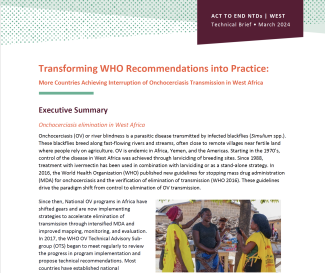
Transforming WHO Recommendations into Practice
This technical brief discusses how the West African countries within the Act | West portfolio have transformed WHO guidelines and recommendations into practical approaches to achieve interruption of onchocerciasis transmission.
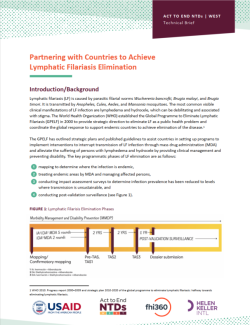
Partnering with Countries to Achieve Lymphatic Filariasis Elimination
This technical brief discusses WHO's Global Programme to Eliminate Lymphatic Filariasis (GPELF) and Act | West's approach that is used to support countries to achieve LF elimination.
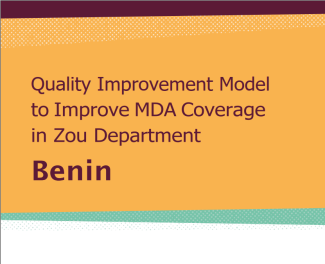
Quality Improvement Model to Improve MDA Coverage in Zou Department: Benin
USAID’s Act to End NTDs | West program supports the elimination and control of neglected tropical diseases in Benin. Mass drug administration for the elimination a
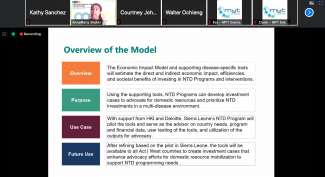
Considerations for developing and deploying cost and economic impact models in the elimination/control of 5 PCT NTDs
The economic impact model and supporting disease-specific tools estimate the direct and indirect economic impact, efficiencies, and societal benefits of investing in NTD programs and interventions. The workshop will explain how NTD programs can use the supporting tools to develop investment cases to advocate for domestic resources and prioritize NTD investments in a multi-disease environment. It will also describe how, with support from HKI and Deloitte, Sierra Leone’s NTD program will pilot these tools and serve as the advisor on country needs, program and financial data, user testing of the tools, and utilization of the outputs for advocacy. After incorporating the feedback from the pilot in Sierra Leone, the Act | West team will make the tools available to all supported countries to create investment cases that enhance advocacy efforts for domestic resource mobilization for NTD programming.

Applying a quality improvement model to neglected tropical diseases program implementation: supporting programs in identifying keys for sustaining operations
West African neglected tropical diseases (NTD) programs have made great progress toward the elimination/control of NTDs amenable to preventive chemotherapy. However, some districts have failed impact surveys—notably for lymphatic filariasis and trachoma—due to implementation inadequacies, despite reporting good mass treatment coverage. A quality improvement framework has been initiated to strengthen country program interventions and address issues that hinder their ability to achieve the World Health Organization NTD road map elimination/control goals.
The workshop aims to present an innovative model for improving implementation and discuss ideas, strategies, and plans for initiating quality improvement (QI) activities. Experiences from Ghana and Sierra Leone in the design and implementation of the QI model will be shared.
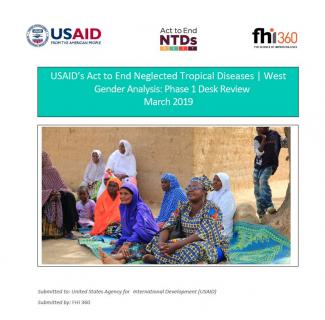
Gender Analysis: Phase 1 Desk Review
The USAID Act to End NTDs | West program's two-phase gender analysis examines the differential impact of NTDs by gender, including how gender norms and power differentials may impact NTD program results and how the program can help advance gender equality. Phase one of the gender analysis consists of a literature review, drawing on published and grey literature, as well as an initial analysis of available quantitative data.
